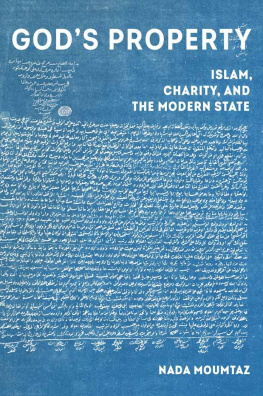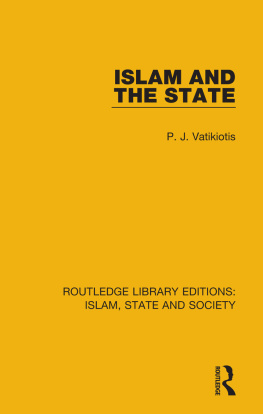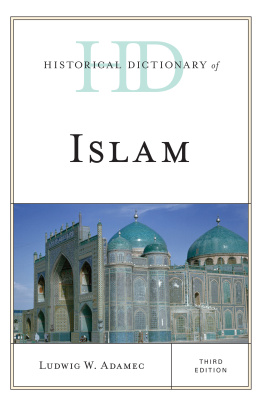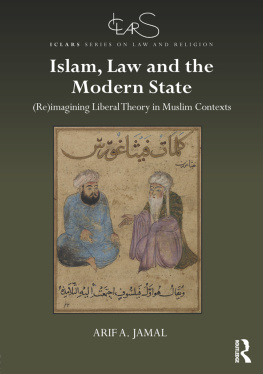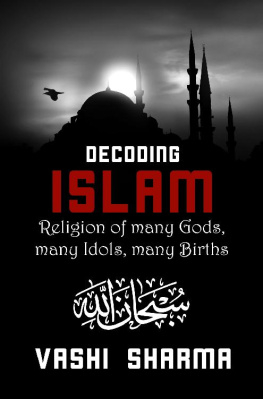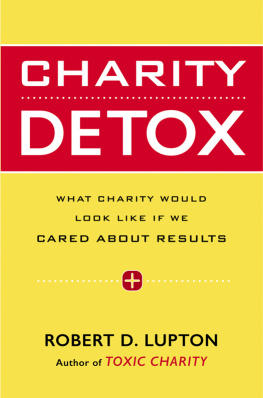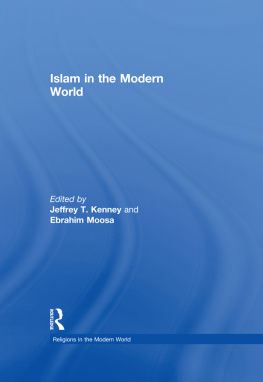Nada Moumtaz - Gods Property: Islam, Charity, and the Modern State
Here you can read online Nada Moumtaz - Gods Property: Islam, Charity, and the Modern State full text of the book (entire story) in english for free. Download pdf and epub, get meaning, cover and reviews about this ebook. year: 2021, publisher: University of California Press, genre: Politics. Description of the work, (preface) as well as reviews are available. Best literature library LitArk.com created for fans of good reading and offers a wide selection of genres:
Romance novel
Science fiction
Adventure
Detective
Science
History
Home and family
Prose
Art
Politics
Computer
Non-fiction
Religion
Business
Children
Humor
Choose a favorite category and find really read worthwhile books. Enjoy immersion in the world of imagination, feel the emotions of the characters or learn something new for yourself, make an fascinating discovery.
- Book:Gods Property: Islam, Charity, and the Modern State
- Author:
- Publisher:University of California Press
- Genre:
- Year:2021
- Rating:5 / 5
- Favourites:Add to favourites
- Your mark:
- 100
- 1
- 2
- 3
- 4
- 5
Gods Property: Islam, Charity, and the Modern State: summary, description and annotation
We offer to read an annotation, description, summary or preface (depends on what the author of the book "Gods Property: Islam, Charity, and the Modern State" wrote himself). If you haven't found the necessary information about the book — write in the comments, we will try to find it.
Gods Property: Islam, Charity, and the Modern State — read online for free the complete book (whole text) full work
Below is the text of the book, divided by pages. System saving the place of the last page read, allows you to conveniently read the book "Gods Property: Islam, Charity, and the Modern State" online for free, without having to search again every time where you left off. Put a bookmark, and you can go to the page where you finished reading at any time.
Font size:
Interval:
Bookmark:
Luminos is the Open Access monograph publishing program from UC Press. Luminos provides a framework for preserving and reinvigorating monograph publishing for the future and increases the reach and visibility of important scholarly work. Titles published in the UC Press Luminos model are published with the same high standards for selection, peer review, production, and marketing as those in our traditional program. www.luminosoa.org
Gods Property
ISLAMIC HUMANITIES
Shahzad Bashir, Series Editor
Publication of this Luminos Open Access Series is made possible by the Islam and the Humanities Project of the Program in Middle East Studies at Brown University.
Forging the Ideal Educated Girl: The Production of Desirable Subjects in Muslim South Asia , by Shenila Khoja-Moolji
Witness to Marvels: Sufism and Literary Imagination , by Tony K. Stewart
Gods Property: Islam, Charity, and the Modern State , by Nada Moumtaz
Gods Property
Islam, Charity, and the Modern State

Nada Moumtaz

UNIVERSITY OF CALIFORNIA PRESS
University of California Press
Oakland, California
2021 by Nada Moumtaz
This work is licensed under a Creative Commons [CC BY-NC-ND] license. To view a copy of the license, visit http://creativecommons.org/licenses .
Suggested citation: Moumtaz, N. Gods Property: Islam, Charity, and the Modern State . Oakland: University of California Press, 2021.
DOI: https://doi.org/10.1525/luminos.100
Library of Congress Cataloging-in-Publication Data
Name: Moumtaz, N., author.
Title: Gods Property: Islam, Charity, and the Modern State / Nada Moumtaz
Other titles: Islamic Humanities ; 3.
Description: Oakland, California: University of California Press, [2020] | Series: Islamic Humanities ; 3 | Includes bibliographical references and index.
Identifiers: LCCN 2020027438 (print) | LCCN 2020027439 (ebook) | ISBN 9780520345874 (paperback) | ISBN 9780520975781 (ebook)
Subjects: LCSH: WaqfLebanon. | EndowmentsLebanon. | IslamCharities. | Charitable uses, trusts, and foundations (Islamic law)Lebanon. | Charity laws and legislationLebanon.
Classification: LCC BP170.25 .M68 2020 (print) | LCC BP170.25 (ebook) | DDC 297.5/40dc23
LC record available at https://lccn.loc.gov/2020027438
LC ebook record available at https://lccn.loc.gov/2020027439
Manufactured in the United States of America
24 23 22 21
10 9 8 7 6 5 4 3 2 1
This book has been long in the making. Encounters with many wonderful mentors, interlocutors, friends, and family developed my roots and interests into this beast. Its shortcomings are the result of my own limits, my well-known stubbornness, and my very slow thinking.
The book emerged from the intellectual milieu that was CUNYs Graduate Center between 2003 and 2012 as it intersected with personal experiences and the intellectual and political commitments I developed in my training at the Department of Architecture and Design (ArD) of the American University of Beirut (AUB). The ArD and AUB pushed me out of my Beiruti middle-class bubble and expanded my horizons, developing my interest in socio-spatial dialectics and bent to social justice. I am still traveling the roads Marwan Ghandour has opened for me in ways of thinking and approaching the world. I blame Mona Fawazs wisdom for landing me in anthropology. Along with Mona Harb, Howayda al-Harithy, and Jala Makhzoumi, she has shown excitement for and support of my work that has always brought forth its relevance to the place I always come back to: Beirut.
At the Graduate Center, Talal Asad provided unwavering support, close engagement, and an immediate understanding of the intellectual and personal project that this work is. His writings, questions, and insights resonated deeply and changed profoundly the way I think. He has continued to extend generous support and encouragement in the years since I graduated. David Harveys intellectual curiosity, interest, patience, generosity, humor, and friendship allowed me to follow my own interests and pushed me to find my voice while keeping in mind the larger picture. Vincent Crapanzano always read with insight and charity, able to uncannily understand my thought process and to see where I was heading. Katherine Verdery, who in her first semester at CUNY offered extensive comments on the first draft of my proposal before she even knew me or was on my committee, helped me place this project within anthropological debates and generously supported me. Louise Lennihans enthusiasm for an early draft of a proposal for this project provided me the encouragement and confidence to undertake it. Mandana Limbert kindly agreed to be on my exam committee and provided many helpful suggestions. Don Robothams humor, knowledge, support, and third-worldism made me feel at home in an otherwise very American program. Life at the GC would have been miserable without the guidance of Ellen de Riso. Supportively led by Julie Skurski, the anthropology dissertation group initiated my writing. While the composition varied across the years, Alessandro Angelini, Vivian Berghan, Sam Byrd, Christine Folch, Amy Jones, Andy Newman, Jeremy Rayner, and Ted Sammons pushed me to articulate the stakes of the project. The short-lived but so very inspiring Middle East dissertation group provided intellectual affinities and trust. I am particularly thankful to Aleksandra Majstorac-Kobiljski and Sara Pursley, who pulled us together, and to Shea McManus, Raja Abillama, Jeff Culang, Yunus Doan Telliel, and Seil Ylmaz, for their engagement and comments. Others read my various attempts to pull the various strands of this project into a coherent proposal: Diana Allen, Giancarlo Casale, Sam Haselby, Trenholme Junghans, and Paul Spohr.
New York, its consortium, and its bustling intellectual-academic life allowed me to meet scholars whose work and engagement left deep marks on this book. Brinkley Messicks Calligraphic State and its discussion of waqf was foundational for this project and so I was thrilled when he accepted to be my external reader. I am particularly grateful for his taking the time for a long discussion following my defense. His capacity to highlight the particularities of my work, which I take for granted, helped me see what I was doing. I am grateful that he continues to be a generous interlocutor. Michael Gilsenan engaged and supported this work in precarious times: its early and still confused phases. Wael Hallaq, without knowing me, responded to my emails and queries as an entitled graduate student. He gave me some of his precious time on many occasions and shared material, thoughts, and insights. His Shar a was crucial to my making sense of my materials in the first iteration of this book as a dissertation. Etem and Sibel Erols contagious passion for the Turkish language and Turkish literature could not have been a better introduction. Etems shared interest in Ottoman waqf opened the door for me to the Turkish literature on the matter, as he slowly walked me through reading some of the material. He left us way too early.
I have been extremely fortunate to have had generous financial and institutional support to produce this work. The Graduate Centers Writing- Across-the-Curriculum Fellowship and Dissertation Writing Fellowship, the Wenner-Gren Foundation, the National Science Foundation, the Charlotte W. Newcombe Foundation, Europe in the Middle EastThe Middle East in Europe (EUME) program, and the MIT Agha Khan Program in Islamic Architecture provided generous financial support and most importantly time to read and think. I would like to thank George Khalil and Gudrun Krmer for hosting me in Berlin, and Nasser Rabbat and Jim Wescoat for hosting me at MIT. I have been blessed with tremendously supportive departmental chairs. At Ohio State University, Kevin van Bladel strongly endorsed and arranged for a leave so I could spend a year in Germany at EUME. Both John Kloppenborg, chair of the Department for the Study of Religion (DSR), and Tim Harrison, chair of Near and Middle Eastern Civilizations (NMC), arranged for me to go through my third-year review early and take a year-long leave, without which I dont know how I would have finished my revisions. A book workshop was generously supported by the DSR, NMC, and the Centre for Diaspora and Transnational Studies, chaired by Kevin ONeill. Anver Emon, and the Institute of Islamic Studies provided consistently enthusiastic support and research assistantship at the exact moment I needed it.
Next pageFont size:
Interval:
Bookmark:
Similar books «Gods Property: Islam, Charity, and the Modern State»
Look at similar books to Gods Property: Islam, Charity, and the Modern State. We have selected literature similar in name and meaning in the hope of providing readers with more options to find new, interesting, not yet read works.
Discussion, reviews of the book Gods Property: Islam, Charity, and the Modern State and just readers' own opinions. Leave your comments, write what you think about the work, its meaning or the main characters. Specify what exactly you liked and what you didn't like, and why you think so.

